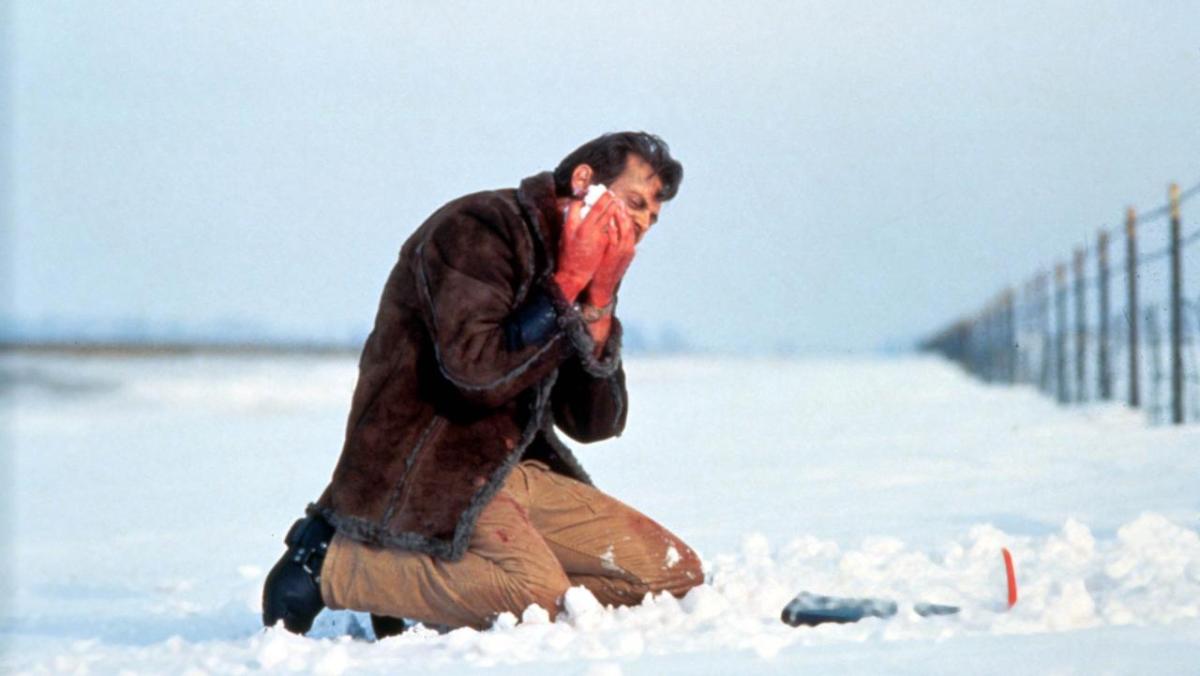How far would you go to pay off your debts? This is the question that the 1996 black comedy crime film, Fargo, explores. The film follows Jerry Lundegaard (William H. Macy), who is the executive sales manager of a car dealership owned by his father-in-law, Wade (Harve Presnell). Lundegaard is badly in debt and Wade refuses to lend him money. In desperation, Lundegaard decides to hire two men to kidnap his wife, Jean (Kristin Rudrüd). Upon her kidnapping, he will extort an $80,000 ransom for Wade, give the kidnappers a small payout, and keep the remainder of the money. However, things take a dark turn when one of the kidnappers kills a state trooper.
What transpires next is a grisly blood fest as covers are blown, police become involved, and numerous people eye the coveted ransom. While Fargo is bloody and violent, it’s also cleverly absurd and funny. It’s originality, quirk, action, and intriguing storyline, make for an extremely entertaining story. The film went on to achieve critical acclaim and is considered one of the best ever made. It even spurned a spin-off anthology series, also titled Fargo, that follows various murder investigations in different midwestern towns.
Meanwhile, both Fargo the film and the TV series have an interesting tradition. The film, and every episode, starts with superimposed text stating that it is based on a true story. In the TV show, the claims are completely false and the text is only put there because the film did it first. The film claims the true story occurred in Minnesota in 1987 and that names were changed to respect the dead. Did the film lie, too, or is Fargo actually a true crime story?
Is Fargo based on a true story?
Fargo is not based on a true story. However, the Coen brothers, who directed and wrote Fargo, have changed their story numerous times. First of all, Fargo basically contradicts itself by having the true story claim, as well as having a fictitious person disclaimer in the credits, which reiterates that the film is not based on real people. Naturally, the Coen brothers were questioned about the contradiction. Initially, they insisted that the film was based on a real criminal event, but that they wrote a fictional story around it.
Later, they would clarify that the crime didn’t happen in Minnesota. Yet, at times, they also stated that the film was purely fictional. Joel Coen’s reason for lying was, “If an audience believes that something’s based on a real event, it gives you permission to do things they might otherwise not accept.” Meanwhile, to further convolute the story, the special edition DVD of Fargo claims that the story was inspired by the real-life crime of Helle Crafts brutal murder in Connecticut.
Ultimately, the DVD seems to hold the final truth that Fargo was inspired by some real life events. For instance, the way in which Crafts body was disposed of, was utilized in the film. Hence, it seems the Coen brothers did some cherry picking for inspiration in their film. However, though the film had inspiration, it is clearly not based on, nor is a retelling of, actual events. The Coen brothers’ shift in narrative was most likely just an attempt at carrying on the façade and duping viewers.
(featured image: Gramercy Pictures)









Published: Jun 28, 2022 07:36 pm